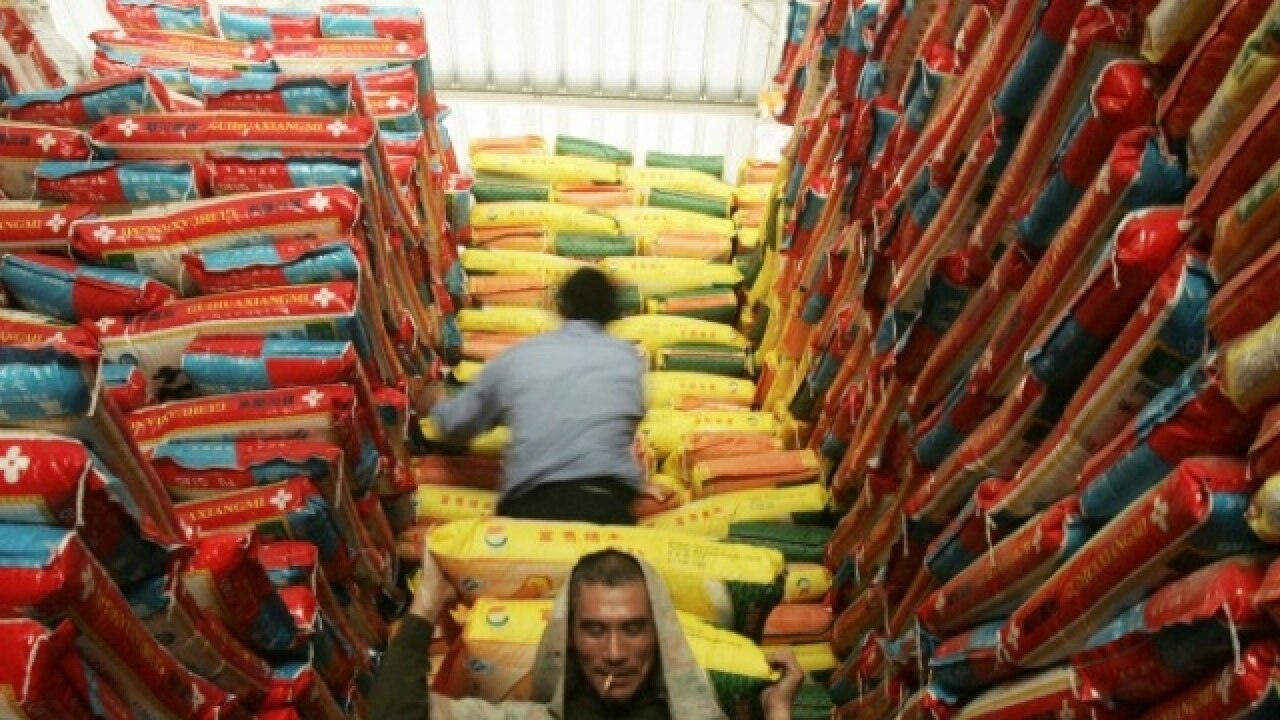
Punjab foodgrain scam: why it is a nightmare for banks
- Select a language for the TTS:
- UK English Female
- UK English Male
- US English Female
- US English Male
- Australian Female
- Australian Male
- Language selected: (auto detect) - EN
Play all audios:

What is the Punjab foodgrain controversy and why are banks in trouble? The latest scam in Punjab, the foodgrain scam, has led to banks staring at heavy losses and top bankers have decided to
stop lending to the state. Why? Because they want the state government to figure out how foodgrain worth Rs 20,000 crore has gone missing from the FCI godowns. WHAT IS THE PUNJAB FOODGRAIN
CONTROVERSY? Four top stakeholders namely the state government of Punjab, Food Corporation of India (FCI), Reserve Bank of India (RBI) and other top banks led by the State Bank of India
(SBI) are caught up in a controversy called the Punjab Foodgrain scam. The RBI found out few days ago that food stocks worth Rs 20,000 crore have gone missing from the FCI godowns in Punjab.
SO WHY ARE BANKS INVOLVED IN THIS? The state has claimed that it has procured the stocks after taking loans from the consortium of banks led by SBI. RBI directs public sector banks like
SBI to fund the state government's quota for grain procurement. As directed, the banks lend money to FCI which then proceeds to procure the directed amount of food grains from the open
market that the state government is supposed to procure and subsequently distribute as per annual plan. RBI had directed banks to make 15% provision on loans of Rs 12,000 crore which can
result in total provisions of up to Rs 3,000 crore on account of the scam. Banks have been asked to make 7.5% each provision in the March and June quarters. Arundhati Bhattacharya, CEO, SBI
had said that RBI has asked the top lender to make provisions for possible losses on account of the unfolding foodgrain scam in the state. CONTROVERSY The directive of the RBI had raised
controversy amongst all stakeholders. Punjab government had refuted RBI's claim of any shortfall in stocks or misuse of funds. This gap created between the claims and the actual amount
received has led to the controversy. VERDICT BY BANKS The consortium of banks led by SBI held a meeting in New Delhi on Monday and came to a decision that that they would stop lending to
the state government until the issue is resolved. "Stopping further lending to the Punjab government is an option we have discussed if the state or the central agency Food Corporation
do not resolve the issue at the earliest," a senior official of a public sector lender told PTI. WHAT IS THE GOVERNMENT DOING TO RESOLVE THE ISSUE? Minister of State for Finance
Minister Jayant Sinha said that the government is trying to resolve the issue by working with regulators. We are working with the regulators as well as the banks and various other government
agencies to ensure the matter with respect to the food stocks in Punjab is satisfactorily resolved." WHY ARE BANKS WORRIED? Around 30 banks have a total exposure of Rs 40,000 crore to
the Punjab government, which procures 40% of the Rs 1 trillion worth of foodgrains annually on behalf of the FCI/Centre Annual food credit. After the issue erupted, RBI had asked those banks
to set aside money as provisions for non-performing assets as foodgrain was found to be missing from the state godowns. Banks are claiming that loans to states are sovereign in nature and
therefore there is no question of default and, thus, there is no need for provisions. But the RBI is not ready to buy this argument. However, the Punjab government has denied all reports and
has said all stocks procured over the years have been duly accounted for. POLITICAL AGENDA The Congress and the Aam Aadmi Party (AAP) demanded a court-monitored audit by the Comptroller and
Auditor General (CAG) into the procurement of foodgrains. Rahul Gandhi along with other Congress members sought assurance from Prime Minister Narendra Modi and Finance Minister Arun Jaitley
that the farmers of the state would not be allowed to suffer on account of delay or non-payment against the crop purchase in the wake of the RBI alert. “There cannot be worse news for a
state which is the food bowl of India, providing 114 lakh tonnes of wheat annually to the central pool. It puts a question mark on the capacity of the Akali-BJP government to procure the
current wheat crop,” said Randeep Surjewala, in-charge of the communication cell of the All India Congress Committee (AICC). Meanwhile, AAP national spokesman Sanjay Singh said the Parkash
Singh Badal government must come clean on how the food stocks were siphoned off, while demanding a probe by a sitting Supreme Court judge. Party MP Bhagwant Mann said, “Our biggest worry is
that if the Badal government has failed to repay the loan taken from banks to purchase the missing stock, how will it pay the farmers for their wheat crop whose procurement has already
begun?” The biggest question still remains— where have all the foodgrains vanished?
